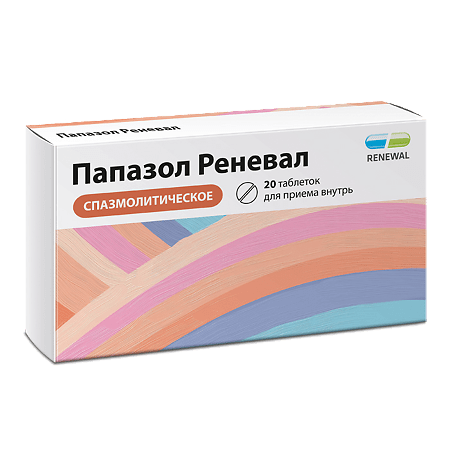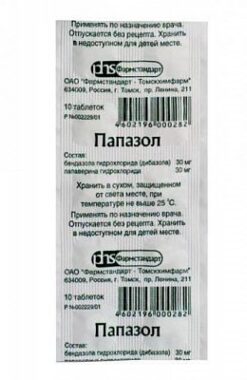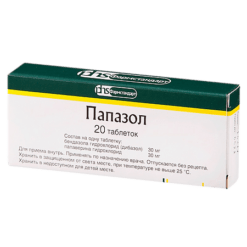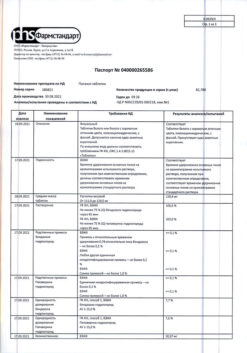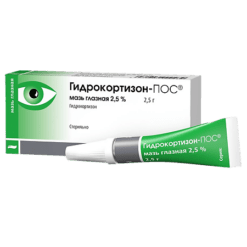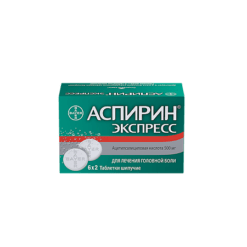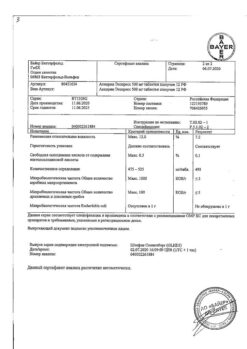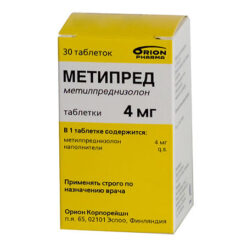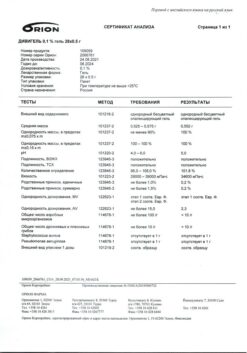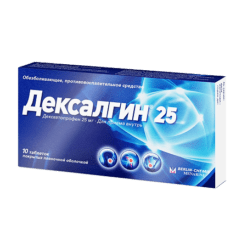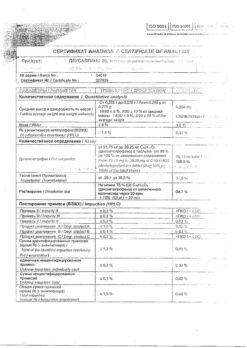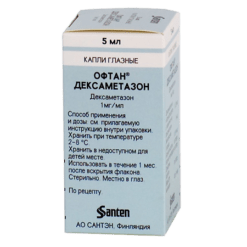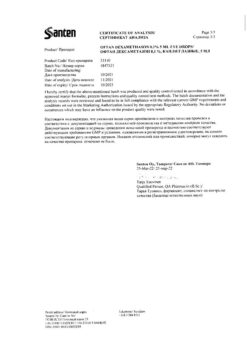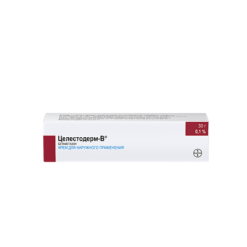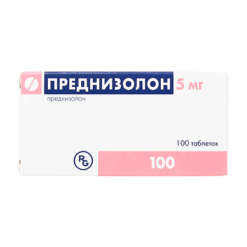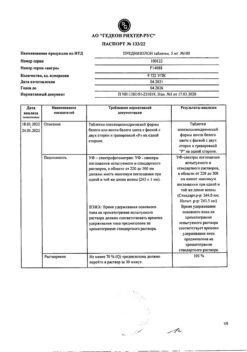No products in the cart.
Papazole Reneval, tablets 30 mg+30 mg 20 pcs
€6.55 €5.82
Description
Pharmacotherapeutic group: antispasmodic agent.
ATX code: A03AX
Pharmacological properties
Pharmacodynamics<
A combination drug, has antispasmodic, hypotensive, arteriodilator action.
Bendazole (dibazole) is an antispasmodic agent of myotropic action. It has a vasodilator and antispasmodic effect.
Papaverine hydrochloride is a myotropic antispasmodic agent.
Decreases tone of smooth muscles of internal organs and blood vessels. Causes
dilation of arteries, promotes increased blood flow, including cerebral blood flow.
Pharmacokinetics
Bendazole – bioavailability about 80%, the products of biotransformation of bendazole
in blood are two conjugates formed due to methylation and carboethoxylation of the imino group of the imidazole ring of bendazole:
1-methyl-2-benzylbenzimidazole and 1-carboethoxy-2-benzylbenzimidazole. Metabolites of bendazole are excreted in the urine.
Papaverine hydrochloride has an average bioavailability of 54%. Binding with plasma proteins is 90%. Well distributed, penetrates through histohematic barriers. Metabolized in liver. Elimination half-life is 0.5-2 hours (can be prolonged up to 24 hours). It is excreted by kidneys as metabolites. Completely eliminated from the blood in hemodialysis.
Indications
Indications
Active ingredient
Active ingredient
Composition
Composition
Active ingredients:
Bendazole – 30 mg
Papaverine hydrochloride – 30 mg
Excipients:
Potato starch – 56 mg
Talc – 3 mg
Stearic acid – 1 mg
How to take, the dosage
How to take, the dosage
Ingestion.
Adults and children over 12 years: 1-2 tablets 2-3 times a day.
Children from 3 to 12 years:one tablet 2-3 times a day.
The dosage regimen is determined by the treating physician.
The course of treatment is individual, usually 2-4 weeks.
Interaction
Interaction
Pharmacodynamic:concomitant use with antispasmodics, sedatives, diuretics, tricyclic antidepressants, procainamide, reserpine, quinidine may increase the hypotensive effect
.
Weakens the effect of anticholinesterase drugs (galantamine, proserine, physiostigmine and others) on smooth muscle; reduces the antiparkinsonian
effect of levodopa.
Pharmacokinetic:adsorbents, astringents, and coated agents reduce absorption of the drug in the gastrointestinal tract.
Bendazole: prevents beta-adrenoblocker-induced increase in
total peripheral vascular resistance. Phentolamine increases the hypotensive effect of bendazole.
Papaverine hydrochloride: reduces the antiparkinsonian effect of levodopa and the hypotensive effect of methyldopa. In combination with barbiturates the antispasmodic effect of papaverine is increased. When combined with tricyclic antidepressants, procainamide, reserpine, quinidine the hypotensive effect of papaverine may be increased. In combination with alprostadil the risk of priapism increases.
Special Instructions
Special Instructions
Alcohol intake should be avoided during treatment.
Impact on the ability to drive vehicles, machinery
When undergoing treatment, caution should be exercised when driving motor transport
and engaging in other potentially dangerous activities that require increased concentration and quick psychomotor reactions.
Synopsis
Synopsis
Contraindications
Contraindications
Hypersensitivity to the components of the drug, atrioventricular conduction disorders, respiratory depression, epileptic syndrome, bronchoobstructive syndrome, children under 3 years of age.
With caution
Limited intestinal peristalsis, traumatic brain injury, hepatic and/or renal failure, hypothyroidism, adrenal insufficiency, prostatic hyperplasia, pregnancy, lactation.
Side effects
Side effects
The following criteria were used to assess the frequency of adverse reactions (ARs): “frequent” (⥠1/100, < 1/10); “infrequent” (⥠1/1000, < 1/100); “rare” (⥠1/10000, < 1/1000); “very rare” (< 1/10000); “frequency unknown” (cannot be estimated based on available data). HPs are grouped according to the system-organ classes of the MedDRA Regulatory Medical Dictionary as well as the recommendations of the World Health Organization.
For Papazole
To date, no side effects have been reported when taking
this combination. The frequency of occurrence of the following possible
side effects is unknown.
Central nervous system: dizziness, somnolence.
Cardiovascular system disorders: development of atrioventricular block, impaired heart rhythm, decreased myocardial contractility.
Digestive system disorders: nausea, vomiting, constipation.
Skin disorders: increased sweating.
Others: allergic reactions.
For Bendazole
The effects listed occur when used in high doses. If the dose is reduced or the drug is stopped, these side effects go away quickly.
Central nervous system: frequency unknown – dizziness, headache.
Skin disorders: frequency unknown – increased sweating.
Gastrointestinal system: frequency unknown – nausea.
For Papaverine hydrochloride
From the central nervous system: often – drowsiness.
Skin: often – skin rash (usually erythematous, urticaria), infrequently – skin itching, rarely – increased sweating.
Digestive system: frequently – nausea, constipation, infrequent – increase of liver transaminases activity.
Cardiovascular system: often – decreased blood pressure, infrequent – ventricular extrasystole.
Hematopoietic organs: very rarely – eosinophilia.
It is important to report the development of adverse reactions in order to ensure continuous monitoring of the benefit-risk ratio of the drug.
If any of the side effects listed in the instructions worsen, or if you notice any other side effects not listed in the instructions, tell your doctor. Medical professionals report adverse reactions to the medication through the national adverse reaction reporting systems.
Overdose
Overdose
For Papazole:the symptoms of overdose of the drug are due to the properties of its
components. In overdose there is a feeling of heat, increased
sweating, diplopia, weakness, drowsiness, nausea, dizziness,
hypotension, headache.
Treatment:There is no specific antidote. Withdrawal of the drug, gastric lavage, administration of activated charcoal and symptomatic therapy.
For Bendazole:There are no reports of overdose. The most likely adverse event may be a marked decrease in blood pressure.
Treatment:In case of marked decrease in blood pressure, put the patient in the supine position with the lower extremities elevated, conduct symptomatic therapy.
For Papaverine hydrochloride: symptoms of overdose are diplopia (double vision), weakness, decreased blood pressure.
Treatment:symptomatic (maintenance of blood pressure).
Pregnancy use
Pregnancy use
Additional information
| Shelf life | 5 years. Do not use after the expiration date. |
|---|---|
| Conditions of storage | At the temperature not more than 30 °С in the original package (contour cell pack in the packet). Keep out of reach of children. |
| Manufacturer | Update PFC AO, Russia |
| Medication form | pills |
| Brand | Update PFC AO |
Other forms…
Related products
Buy Papazole Reneval, tablets 30 mg+30 mg 20 pcs with delivery to USA, UK, Europe and over 120 other countries.

